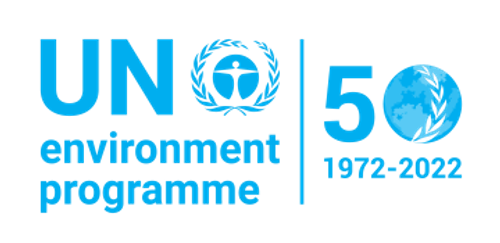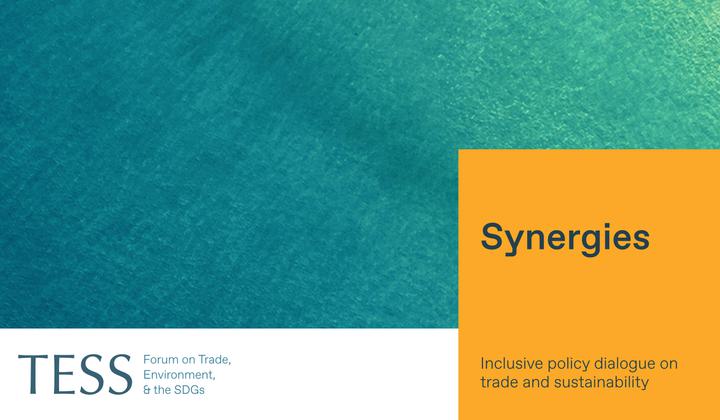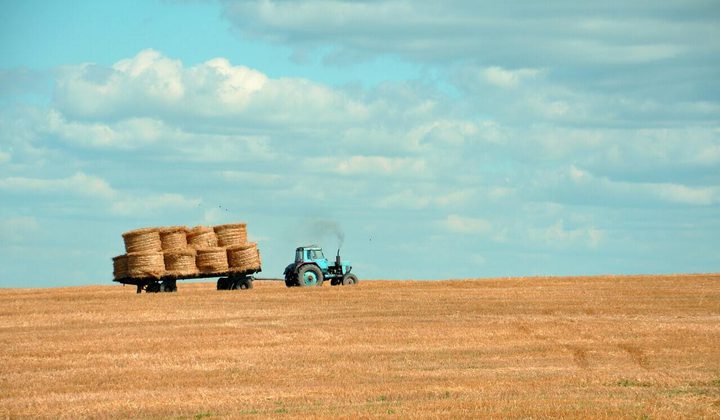On 23 May, the United Nations Environment Programme, the International Trade Centre, and TESS convened an informal roundtable on "Trade and sustainability requirements and standards in agriculture: Options for enhanced and inclusive international cooperation."
In the coming years, a core global challenge is to provide healthy and nutritious food to 9 billion people by 2050 while responding to the rapidly changing diet of a growing middle class in urban areas. After significant progress in reducing both the number and share of malnourished people over the last couple of decades, the number of people affected by hunger worldwide increased in recent years to reach 828 million in 2021 - a situation subsequently worsened by the food and energy crisis associated with the conflict in Ukraine.
Meeting the world's needs for nutritious foods will require improving productivity, access, availability, and stability of food supply and reducing food waste while protecting fragile ecosystems, restoring biodiversity, increasing soil productivity, rationalizing the use of water, and reducing greenhouse gas emissions. Meanwhile, the agriculture sector contributes both directly and indirectly to the three planetary environmental crisis, including through deforestation, soil degradation, biodiversity loss, and greenhouse gas (GHG) emissions.
There are several pathways for both governments and business sector actors to pursue such improvements. One pathway relates to the use of sustainability requirements and standards for agricultural products and trade. “Sustainability requirements” usually refer to requirements that producers, traders, manufacturers, retailers, or service providers may be asked to meet on a wide range of environmental, social, economic, or quality metrics. They can relate to the product itself, including substances it contains, or methods used in the production process. In the context of sustainable agriculture, such requirements include criteria related to the maximum levels of pesticide residues in food and feed or required practices that prevent land and wider ecosystem degradation. The term “sustainability standards” refers to a variety of approaches ranging from voluntary standards adopted by businesses to promote sustainability in their supply chains (e.g. certification initiatives) to frameworks adopted by international organisations, which can be used as reference point in both voluntary and mandatory contexts (e.g. standards developed by the International Organization for Standardization).
Overall, both voluntary sustainability standards and regulatory requirements have the potential to support sustainable agricultural practices by increasing the resilience of small and medium enterprises, diversifying their revenue sources, or increasing price and trade relationships stability. The need to comply with such requirements, however, implies a cost and can pose barriers to trade-related opportunities, particularly for developing countries. Another challenge relates to the proliferation of sustainability requirements and standards and the differences in their focus, the commodities they cover, the geographies where they operate, the level of detail of their requirements, or their conformity assessment or verification policies. Developing country concerns about market access risks have become more acute with the emergence of mandatory due diligence requirements for businesses operating in the agricultural sector. Cross-cutting concerns include inadequate opportunities for consultation and input on the substantive content of standards and criteria used, and compliance challenges particularly for MSMEs in the absence of sufficient access to finance, investment or relevant technologies.
As a contribution to this ongoing discussion, this roundtable brought together Geneva-based trade delegates from both developed and developing countries with leading experts of international organizations in an informal and off-the-record setting. The dialogue took place in a “brainstorming mode” and provided an opportunity for in-depth exploration of key trends and policy developments as well as challenges and opportunities for trade-related cooperation around sustainability requirements and standards. After a series of short thought starter remarks by experts to set the context, the floor was opened for discussion among delegations and invited experts.
Topics discussed included.
- Key developments in sustainability requirements and standards in agriculture from a social, economic and environmental perspective;
- Recent trends, regulations and supply chain initiatives at the international level to promote a shift to more sustainable production and trade patterns;
- Challenges faced by developing countries in complying with sustainability requirements and standards;
- Options for inclusive international cooperation to address the challenges faced by developing countries and fostering a transition to more sustainable agriculture practices.
Agenda
14:00 - 14:15
Welcome Remarks
- Carolyn Deere Birkbeck, Director, TESS
- Elisa Tonda, Chief, Resources & Markets Branch of Economy Division, UNEP
- Joseph Wozniak, Head Trade for Sustainable Development (T4SD), ITC
14:15 - 14:45
Session 1: Setting the Scene: Key Trends in the Development of Sustainability Requirements and Standards
Discussion Starters (7-8 minutes each):
- Joy Kim, Senior Economic Affairs Officer, Economic and Trade Policy Unit, UNEP: Key Sustainability Challenges Facing the Agricultural Sector
- Shemina Amarsy, Advisor Sustainability Standards & Value Chains, ITC: Sustainability Standards and Requirements for Agriculture - International Trade Considerations
Open Discussion
14:45 - 15:25
Session 2: Options for Inclusive International Cooperation to Address the Challenges Faced by Developing Countries and Fostering a Transition to More Sustainable Agriculture Practices
Discussion Starters (3-5 minutes each):
-
Lorena Jaramillo, UNCTAD: Challenges and opportunities arising in biodiversity related sustainability schemes
-
Clara Frezal, OECD: Carbon standards and sustainable agriculture addressing the risk of fragmentation
Click HERE for Clara Frezal' presentation.
- Lika Sasaki, UNCTAD: BioTrade Principles and criteria and voluntary sustainability
standards
Open Discussion
15:25 - 15:30
Concluding Remarks
Moderator: Carolyn Deere Birkbeck, Director, TESS
In collaboration with





